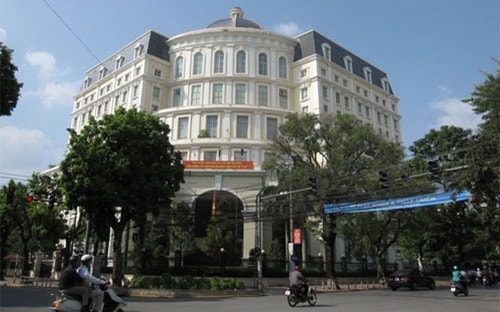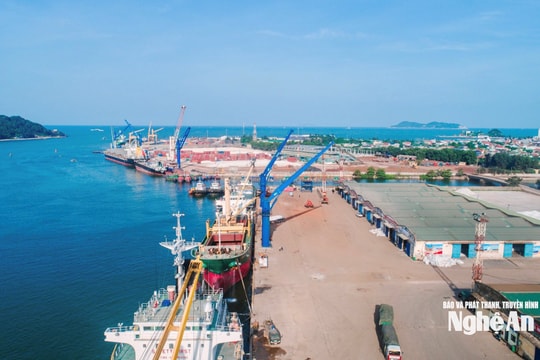Will VAT increase above 10%?
The Ministry of Finance has reported on the orientation of the Law amending and supplementing a number of articles of the Laws on Value Added Tax (VAT).
Raised to 12% from 2019
The Ministry of Finance said that in the process of implementing the current Law on Value Added Tax, many problems arose regarding many non-taxable objects such as fertilizers, machinery, specialized equipment for agriculture, offshore fishing vessels, and land use rights, causing difficulties for businesses and tax management.
“The normal tax rate of 10% is relatively low, not in line with international practice, and difficult to ensure national financial security,” the Ministry of Finance stated.
 |
Headquarters of the Ministry of Finance. |
Some goods and services such as clean water; cultural activities, exhibitions, physical training and sports; art performances; film production; film import, distribution and screening... have been strongly socialized but are still subject to VAT at a rate of 5%, which is not equal to other industries and fields that are subject to VAT at a rate of 10%.
The regulation of applying a 5% tax rate to goods that can be used for multiple purposes, such as: nets, ropes and yarns for weaving fishing nets; specialized equipment and tools for teaching, research, scientific experiments... leads to inconsistency in implementation.
Regarding VAT refunds, the regulation on no refund for "exported products that are goods processed from resources and minerals with a total value of resources and minerals plus energy costs accounting for 51% or more of the product cost" is complicated to implement and, together with the regulation on no refund for cases where the cumulative input VAT is continuously negative over many periods, makes it more difficult for businesses due to increased tax costs.
Therefore, the Ministry of Finance proposed to raise the VAT rate according to two options.
Option 1, the Ministry of Finance proposed to increase from 10% to 12% from January 1, 2019.
Option 2, the Ministry proposed to increase according to the roadmap to 12% from January 1, 2019 and 14% from January 1, 2021. In which, the Ministry of Finance proposed to consider option 1.
“Countries with high public debt often increase indirect taxes”
“Referring to international experience, it shows that in the context of high public debt in countries, including developed countries, countries tend to restructure state budget revenue towards increasing revenue from indirect taxes,” said the Ministry of Finance.
To increase revenue to compensate for the decrease in revenue due to income tax reduction, countries have turned to increasing consumption tax, namely VAT and Special Consumption Tax.“The number of countries applying VAT/goods and services tax has been increasing, from about 140 countries in 2004 to 160 countries in 2014, and 166 countries in 2016,” the report stated.
Along with the increasing number of countries using VAT to regulate consumption as well as increase budget revenue, the trend of increasing VAT rates is common.
The Ministry of Finance's report also cited that from 2009 to 2016, all countries increased their general tax rates. The average tax rate in EU countries in 2000 was 19%, by 2014 the average tax rate was approximately 21.5%. OECD countries also tended to increase VAT rates from an average of 18% in 2000 to about 19% in 2014 and more than 19% in 2016.
Asian countries also tend to restructure budget revenue towards increasing the proportion of consumption tax in total budget revenue from increasing VAT rates such as the Philippines, India, Japan, etc.
“Statistics on tax rates of 112 countries show that 88 countries have tax rates from 12-25%, of which 56 countries have tax rates from 17-25%, and the remaining 24 countries have a common rate of more than 10%. Neighboring countries such as Laos, Indonesia, and Cambodia also have a common tax rate of 17% and a preferential rate of 13%, while the Philippines has a tax rate of 15%,” the Ministry of Finance also cited data from the World Bank.
Recently, the Ministry of Finance also proposed to increase the Special Consumption Tax on a series of products such as soft drinks, cigarettes, tea, bottled coffee...
According to Bach Duong/vneconomy
| RELATED NEWS |
|---|


.jpg)

